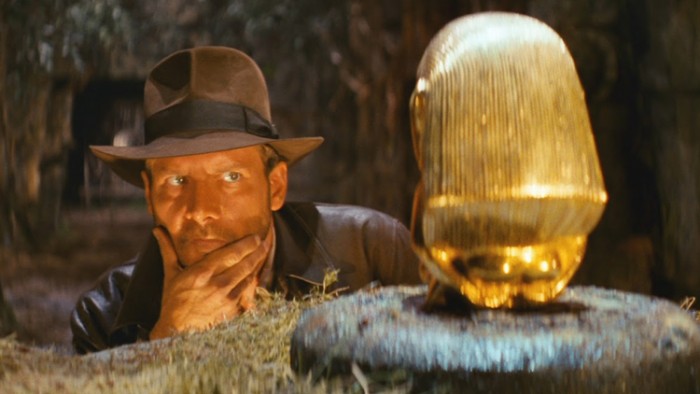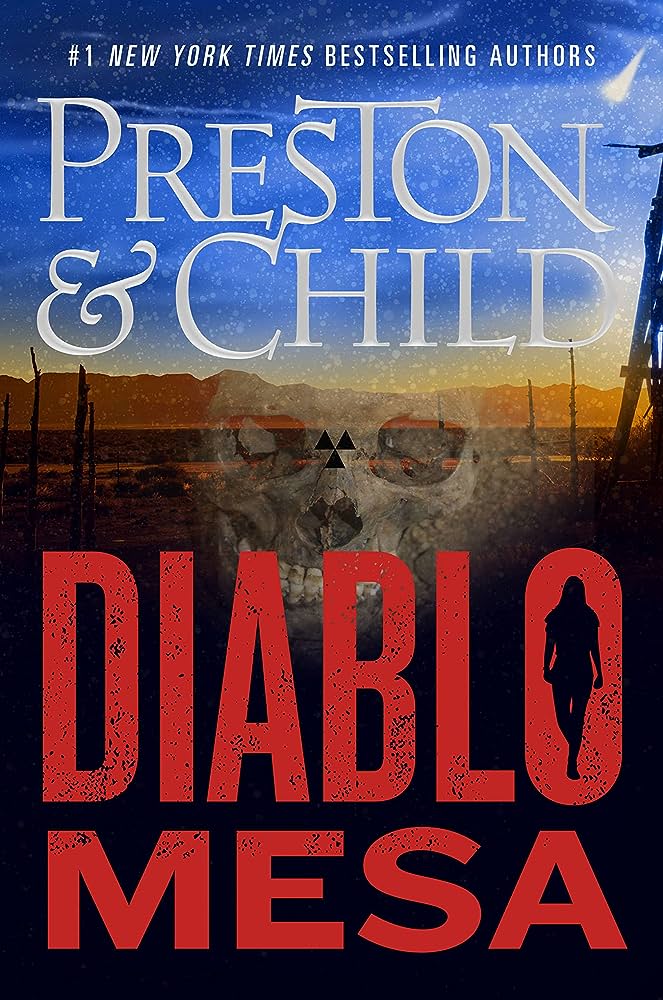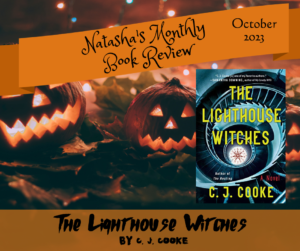Occult fiction.
It’s a term for a subgenre that the part of me raised as an Evangelical posterchild is a smidgeon uncomfortable using. It could just as easily be called fringe or esoteric fiction. Either way, I do tend to like it.
I’ve always enjoyed topics that were on the Fortean side: ancient mysteries, cryptozoology, lost civilizations, and government cover-ups. Books and shows like Stranger Things, Fringe, The X-Files, and Angels and Demons. Even Indiana Jones, always on a quest to retrieve legendary sacred objects before the Nazi occultists could get their hands on them.

And so, when I recently found myself in a reading slump, I made my way to a novel I had picked up at a library book sale by Douglas Preston and Lincoln Child: Diablo Mesa.

It’s the third in their Nora Kelly series, and the first book of theirs I’ve ever read. And the timing couldn’t have been more perfect (*cough* David Grusch *cough*).
The story follows archaeologist Nora Kelly, hired by eccentric billionaire, Lucas Tappan, to excavate the site of the supposed Rosewell crash in 1947. She’s skeptical of it all, but agrees. As they begin the excavation, they discover the bodies of two murder victims, and Nora calls on FBI agent Corrie Swanson to help crack the case. But murder is only the beginning of the problem. The investigation, and the excavation, will sweep them all into a world of government conspiracies and cover-ups and even, possibly, a real non-human intelligence.
So, as you can see, it was right up my alley.
First, I have to say that I just had so much FUN while I was reading this. I’d often find myself with a huge grin on my face when I finished a chapter, which of course, always ended on a cliffhanger. I devoured it in three days. Looking back at my StoryGraph info, I was 13% of the way through the first day, 46% through the second, and then read the last 54% the third day.
I COULD NOT put this down.
The characters were likeable. The mystery was intriguing. There was a ton of action and thrills. It was just the thing I needed to shake me out of my reading slump. But it also got me thinking about writing.
The Requirements of Genre
As I reflected upon the structure of the novel, the pacing, and the language, it made me appreciate how masterful Preston and Child are at writing in their genre. To produce a thriller that readers don’t want to put down, you’ve got to have a great, intriguing plot and good enough characters. And as far as the language goes, it just needs to serve its purpose.
There is no need for flowery prose, multiple paragraphs of description, and pages of character introspection. None of the stuff that would wow the critics of literary fiction are necessary, or even desirable.
But it takes just as much talent to craft an amazing work of genre fiction. You have to know the tropes of the particular genre, and use them while somehow keeping them fresh. You’ve got to know what your audience wants, and what will give them the reading experience they crave.
In epic fantasy, it might be a world with a fully fleshed out history to discover and geography to explore. In a thriller, the threat of a ticking clock requires a quick pace and oftentimes shorter chapters. A romance requires certain beats like a meet cute, a breaking point, and a happily ever after.
So often, the writers of genre fiction are looked down upon by those who dwell in the realms of literary fiction. Creating literary works for the purpose of entertainment is seen as uninspiring and unimportant.

But when you read a work of genre fiction done right, when you read a work of genre fiction written by masters, that belief no longer holds any water.
As I read Diablo Mesa, it made me appreciate the intricacies and skills that go into crafting commercial fiction.
So, if you’re a genre writer, feel proud! Writing stories to entertain IS a valuable and worthy endeavor. Don’t ever let anyone tell you otherwise.




